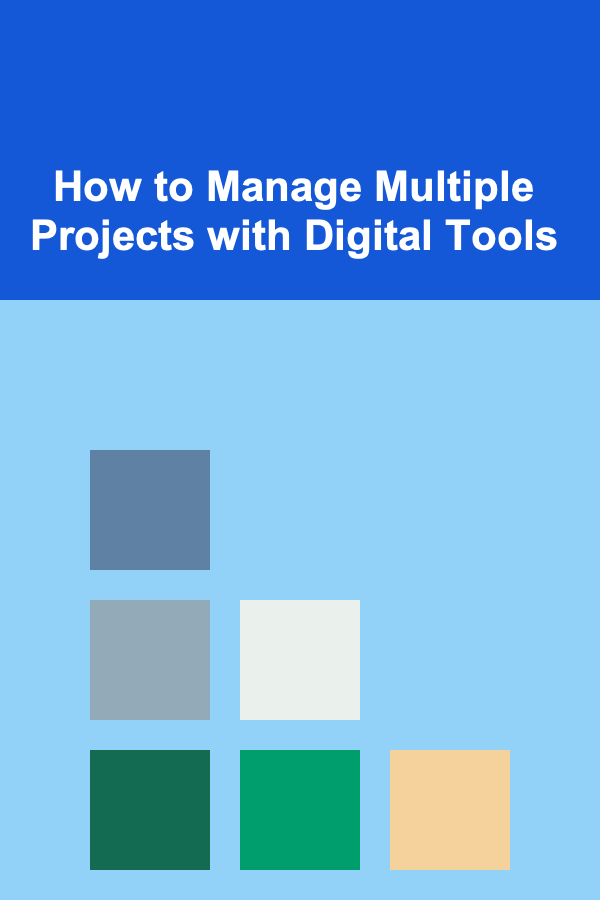
How to Make Your Home Budget More Flexible Without Losing Control
ebook include PDF & Audio bundle (Micro Guide)
$12.99$7.99
Limited Time Offer! Order within the next:

In a world where financial priorities can shift unexpectedly---whether from life changes, market fluctuations, or even personal goals---having a flexible home budget is essential. However, flexibility doesn't mean sacrificing control or losing sight of long-term financial goals. The key lies in striking the right balance: staying adaptable while maintaining discipline.
This guide will explore how you can design and maintain a flexible home budget that accommodates life's uncertainties without undermining financial stability. We'll cover everything from understanding the fundamentals of budgeting to strategic techniques that ensure you can adjust to changes while keeping your finances on track.
The Importance of Budget Flexibility
At first glance, the concept of flexibility in budgeting might seem at odds with traditional financial wisdom. After all, isn't budgeting supposed to be about strict adherence to categories and limits? While it's important to stick to certain rules, budgeting isn't a rigid, one-size-fits-all exercise. Life, by nature, is unpredictable, and your home budget needs to be dynamic enough to adjust when circumstances change.
- Life Changes: Life events---such as a job loss, unexpected medical bills, or having a baby---can have a profound impact on your budget. A flexible budget ensures that you can make changes without feeling overwhelmed.
- Economic Factors: Market volatility, inflation, and fluctuating costs of living can all affect your spending. A flexible budget allows you to adjust your expenses to stay within your means during periods of economic uncertainty.
- Personal Growth: Over time, your financial goals will likely change as you advance in your career, experience new life stages, or prioritize different goals. Budgeting flexibility helps you navigate this natural evolution.
While flexibility is necessary, it's essential to have a foundation of control so you don't find yourself overspending or derailing your long-term goals. Flexibility should be strategic rather than chaotic.
Step 1: Understand Your Fixed and Variable Expenses
One of the first steps toward creating a flexible home budget is to clearly differentiate between fixed and variable expenses. Fixed expenses are non-negotiable costs that recur every month, while variable expenses fluctuate depending on your choices and needs.
Fixed Expenses
These are the necessary and predictable costs that are unlikely to change from month to month. They include:
- Rent/Mortgage: Your home loan or rental payment, usually a fixed amount.
- Utilities: Water, electricity, gas, and other essential services.
- Insurance: Health, auto, home, or life insurance premiums.
- Debt Payments: Loans or credit card payments that require regular, fixed payments.
Variable Expenses
On the other hand, variable expenses are flexible and can be adjusted based on your spending decisions:
- Groceries: While necessary, the amount you spend on food can vary depending on your habits and choices.
- Transportation: Gas, car maintenance, public transit, or rideshare services. The amount spent can change depending on your needs or lifestyle.
- Entertainment: Dining out, movies, subscriptions, and other leisure activities.
- Healthcare: Non-routine medical expenses like prescriptions, co-pays, or over-the-counter medications.
To make your budget more flexible, the key is to focus on controlling variable expenses while allowing some leeway for flexibility.
Step 2: Build an Emergency Fund
An emergency fund is the foundation of a flexible budget. Having savings set aside for unforeseen circumstances allows you to make necessary adjustments to your spending without panic. Without an emergency fund, even small life changes can cause significant stress and potentially derail your financial goals.
A good rule of thumb is to aim for at least three to six months' worth of living expenses in your emergency fund. This provides a cushion to cover unexpected expenses, such as medical bills, home repairs, or job loss, without the need to adjust other parts of your budget immediately.
How to Build an Emergency Fund
- Start small: If you haven't started saving for an emergency fund, begin with a small, manageable goal---such as $500---and gradually work your way up.
- Set automatic transfers: Setting up an automatic transfer from your checking account to a savings account can help you steadily grow your emergency fund.
- Cut back on discretionary spending: Temporarily reducing non-essential spending can help you build your emergency fund faster.
Once you have a solid emergency fund in place, it provides the financial flexibility to adjust your monthly budget more easily, knowing that you have a safety net.
Step 3: Use the 50/30/20 Rule as a Framework
While it's important to remain flexible, having a structure is equally crucial. One popular budgeting method that allows for flexibility is the 50/30/20 rule, which divides your income into three categories:
- 50% Needs: These are essential expenses such as housing, utilities, transportation, and insurance.
- 30% Wants: Non-essential expenses such as entertainment, dining out, and vacations.
- 20% Savings and Debt Repayment: Contributions to savings accounts, retirement funds, and paying off debt.
The beauty of the 50/30/20 rule is that it offers a basic structure but allows for adjustments within each category. If, for example, you're saving more aggressively for a down payment on a home, you could temporarily allocate more than 20% toward savings and reduce spending on non-essentials.
The rule provides a framework that helps ensure your financial priorities remain intact, while also allowing you to adjust if your needs change over time.
Step 4: Prioritize Your Goals
Being flexible with your budget requires knowing where to allocate money based on your current priorities. Your goals will shift as life evolves, and a flexible budget allows you to adjust your allocations in line with those goals.
Common Financial Goals
- Debt Repayment: If you're focused on paying down high-interest credit card debt, you may allocate more funds to this area for a time, temporarily adjusting other expenses.
- Saving for Big Purchases: Whether it's a house, a car, or a vacation, flexibility in your budget can help you prioritize saving for these goals.
- Retirement: Your long-term goal of saving for retirement may sometimes take precedence over short-term expenses.
When making adjustments to your budget, always prioritize the most important financial goals. However, ensure that you don't neglect other areas entirely. Flexibility should be about reallocation, not elimination.
Step 5: Review Your Budget Regularly
A flexible budget isn't a "set it and forget it" task. Regularly reviewing your budget ensures that it adapts to any changes in income, expenses, or priorities. Schedule time every month to go over your budget and analyze:
- Are there any unexpected changes in expenses? If you've spent more than expected on utilities, groceries, or transportation, find ways to adjust your budget going forward.
- Has your income changed? If you've received a raise or bonus, you may want to allocate additional funds to savings or invest in other financial goals.
- Have your goals shifted? Life circumstances change, and so should your goals. Whether you're planning for a family or saving for a home, adjust your budget to reflect your new objectives.
Reviewing your budget monthly ensures that you stay on track, adapt to new realities, and maintain financial control while still leaving room for flexibility.
Step 6: Track and Adjust Your Spending
Tracking your spending is one of the best ways to understand where your money is going and identify areas where you can make adjustments. Several tools and apps can help you monitor your expenses and ensure you're staying on target.
Budgeting Tools and Apps:
- Mint: An easy-to-use app that tracks spending and categorizes expenses automatically.
- You Need a Budget (YNAB): An app that emphasizes proactive budgeting and helps users allocate money for specific categories before spending.
- PocketGuard: Tracks your spending and provides insights on how much you have left to spend in a given month.
By regularly tracking your spending, you can make real-time adjustments when necessary, ensuring that you can remain flexible without sacrificing control.
Step 7: Build a Buffer for Variable Expenses
When creating a flexible budget, one important strategy is to build a buffer into your variable expenses category. For example, if you typically spend $500 a month on groceries, set aside an additional $50-$100 each month as a cushion for months when you might need to buy extra supplies or make unexpected purchases.
This buffer not only helps prevent overspending but also gives you the flexibility to account for fluctuating prices or sudden needs without blowing your budget.
Step 8: Implement the Envelope System (Optional)
For those who thrive with more hands-on budgeting techniques, the envelope system can add flexibility while still maintaining control. This method involves allocating a set amount of cash into different envelopes for categories like groceries, entertainment, and transportation. If you run out of cash in one category, you know it's time to reduce spending in other areas.
While the envelope system can feel restrictive for some, it's a great way to develop discipline while also allowing flexibility to adjust to different spending patterns throughout the month.
Conclusion: Flexibility Without Losing Control
Making your home budget more flexible doesn't mean abandoning structure or control. It means being strategic with your spending and actively adjusting to life's twists and turns while staying focused on your long-term financial health. By understanding your fixed and variable expenses, building an emergency fund, using frameworks like the 50/30/20 rule, prioritizing goals, and tracking your spending regularly, you can create a budget that adapts to your evolving needs without compromising your financial stability.
Flexibility doesn't have to be chaotic---it can be a disciplined, thoughtful approach to personal finance that helps you stay in control, no matter what life throws your way.
Reading More From Our Other Websites
- [Personal Investment 101] How to Choose Between Residential and Commercial Properties
- [Rock Climbing Tip 101] From Chalk to Grip: The Ultimate Gear Guide for Bouldering Success
- [Home Space Saving 101] How to Build Space-Saving Shelves That Don't Clutter Your Walls
- [Home Holiday Decoration 101] How to Create a Holiday Centerpiece That Wow's Your Guests
- [Home Staging 101] How to Stage Your Home While Living In It
- [Hiking with Kids Tip 101] Seasonal Scavenger Hunts on the Trail: A Fun Challenge for the Whole Family
- [Organization Tip 101] Step-by-Step Guide to Replacing Roof Shingles Like a Pro
- [Home Holiday Decoration 101] How to Create a DIY Advent Calendar to Countdown to the Holidays
- [Weaving Tip 101] Weave Your Way to Sustainability: Eco‑Friendly Techniques and Materials
- [Star Gazing Tip 101] How to Set Up a Backyard Astro‑Photography Station for Capturing Milky Way Time‑Lapses

How to Create a Weekly Meal Plan to Save Money on Food
Read More
How to Manage Multiple Projects with Digital Tools
Read More
How to Stage Your Home to Highlight Its Architectural Features
Read More
How to Research Marine Biomechanics
Read More
Mastering Transitional Interior Design
Read More
Civil Drafting: How to Detail Sanitary Sewer Systems
Read MoreOther Products

How to Create a Weekly Meal Plan to Save Money on Food
Read More
How to Manage Multiple Projects with Digital Tools
Read More
How to Stage Your Home to Highlight Its Architectural Features
Read More
How to Research Marine Biomechanics
Read More
Mastering Transitional Interior Design
Read More